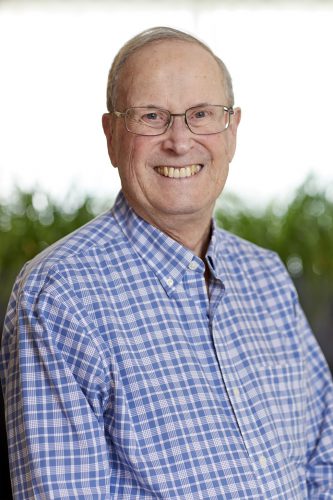
As many of you have seen, we are actively recruiting for a new Chair for our Board and we hope to have the new chair in place early in 2023. In the meantime, the Board and staff continue to carry out our work auditing and investigating forest and range practices, and identifying opportunities for improvement to legislation and practices. We have also met with Ministry staff to get an understanding of the changes to FRPA that are being implemented under Bill 21 (2019) and Bill 23 (2021). These changes will influence how we conduct our audits and investigations in the future.
Last spring the Board decided to embark on a new strategic planning process this fall to guide our work for the next few years. We are proceeding with background preparation work over the next couple of months and will involve the new Chair in plan development in early 2023. We have reached out to Indigenous communities, stakeholders and the public to gather ideas and thoughts on where the Forest Practices Board can add the most value in the coming years. If you have not had the opportunity to contribute your thoughts through our public survey or one of our engagement sessions, we welcome you to send us your thoughts by email at FPBoard@bcfpb.ca.
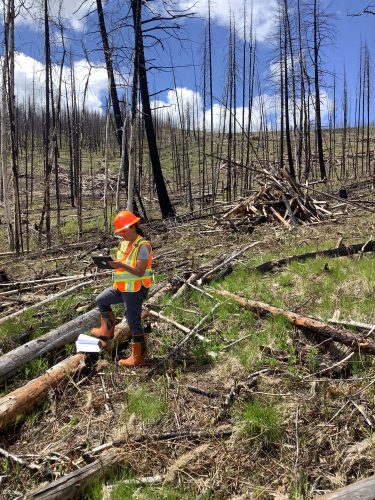 Our final audit report from the 2021 field season is being readied for publication as we write this newsletter. Another six compliance audits were conducted this past field season and are now making their way through our analysis and reporting process. The first of those audits should be heading out the door soon. This year the audit program took us to BC Timber Sales programs in Williams Lake and Fort St. James, five woodlots on Vancouver Island, a First Nation-held forest licence near Salmon Arm, a First Nations woodland licence near Smithers and an Interfor Tree Farm Licence near Clearwater, BC. Through our audits, we continue to examine different types and sizes of forest licences across the province, for compliance with the Forest and Range Practices Act and the Wildfire Act.
Our final audit report from the 2021 field season is being readied for publication as we write this newsletter. Another six compliance audits were conducted this past field season and are now making their way through our analysis and reporting process. The first of those audits should be heading out the door soon. This year the audit program took us to BC Timber Sales programs in Williams Lake and Fort St. James, five woodlots on Vancouver Island, a First Nation-held forest licence near Salmon Arm, a First Nations woodland licence near Smithers and an Interfor Tree Farm Licence near Clearwater, BC. Through our audits, we continue to examine different types and sizes of forest licences across the province, for compliance with the Forest and Range Practices Act and the Wildfire Act.
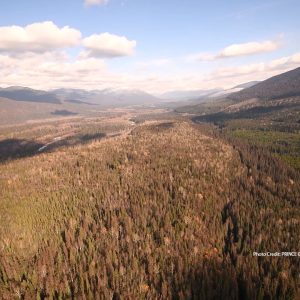 We recently published two investigation reports - one on government’s management of the spruce bark beetle outbreak in the Prince George area and one on the appropriateness of government enforcement related to old tree harvesting in a woodlot on Quadra Island. Both reports are available on our website.
We recently published two investigation reports - one on government’s management of the spruce bark beetle outbreak in the Prince George area and one on the appropriateness of government enforcement related to old tree harvesting in a woodlot on Quadra Island. Both reports are available on our website.
So far this year we received five complaints and there are currently seven ongoing complaint investigations. The general topics of these complaints are achievement of visual quality objectives (2 complaints), range practices and government enforcement (2 complaints), forest practices affecting water (2 complaints), and government wildfire response (1 complaint).
We have also dealt with 40 concerns from members of the public so far this year.
The Board has approved a new special project that will examine forestry activities in the wildland urban interface (WUI) to determine if this work is helping or hindering ongoing efforts to reduce the risk of wildfire around communities.
From 2011-2020 approximately 207 000 hectares were harvested in the WUI. The Forest and Range Practices Act and the Wildfire Act have different objectives, are designed to achieve different outcomes than wildfire risk reduction projects, and are not always compatible. Past Board audits and investigations have shown that forestry practices can add to or subtract from wildfire risk reduction efforts.
This project will evaluate how activities authorized under FRPA and the WA have helped or hindered wildfire risk reduction efforts within the WUI and how those activities align with wildfire risk reduction plans. The investigation will evaluate activity authorized and regulated under FRPA and the WA for a sample of communities considered at extreme risk of wildfire. Samples will be chosen from within the WUI or the boundary of a Community Wildfire Resiliency Plan or their equivalent. Samples will be geographically distributed and include a variety of communities. Project planning is now underway with field work expected to take place next spring/summer.
FRPA and the Wildfire Act provide for appeals of government decisions to the independent Forest Appeals Commission (e.g., approval of forest stewardship plans and contravention determinations). The Board may initiate appeals of certain decisions (in which case it becomes the “appellant”), or join appeals initiated by others (in which case it becomes a “third-party”). The Board’s participation in appeals is important because it can represent the public interest, which may not be brought forward for consideration by the other parties involved in the appeal. Below are summaries of five appeals that the Board recently or is currently participating in.
The Commission recently released its decision in this appeal involving the unauthorized harvest of Crown timber in the Great Bear Rainforest. The Board was the appellant in the appeal. The Commission granted the Board’s appeal in part and increased the penalty amount tenfold. You can read the Commission’s decision here - http://www.fac.gov.bc.ca/forestAndRange/FAC-FRP-21-A003a.pdf.
The Board filed this appeal because it was concerned that the original penalty amount did not serve the public’s interest in deterring persons from intentionally harvesting Crown timber without authorization. The Board thought that a higher penalty amount was warranted to address the deliberate nature of the contravention, the profit derived from the contravention, the four-year period over which the contravention occurred and the risk the contravention created for areas of significance to local Indigenous persons.
The Board is participating in Canfor’s appeal of a Wildfire Act determination. The fire centre manager found Canfor in contravention of the Wildfire Act and the Wildfire Regulation including a failure to ensure that a fire it was responsible for in the Kootenays did not escape. Canfor raises a number of issues in the appeal and the Board intends to focus its participation on Canfor’s reliance on the defence of due diligence. Burning debris piles is a common activity in British Columbia and the Board wants to ensure that the Commission has the information it needs to determine what steps a person who burns debris piles must take to establish a due diligence defence.
The hearing for this appeal was scheduled for November 2022 but was adjourned until after the BC Supreme Court renders a decision that is relevant to the appeal.
The licensee harvested trees from outside of a cutblock near Quesnel, some of which were in an old growth management area (OGMA). The licensee’s equipment operator was working in misty conditions and probably had difficulty determining the cutblock boundary.
The issue in the appeal is the penalty amount, some of which the district manager designated as compensation to the province for the biodiversity value of the trees harvested in the OGMA. The Commission will be revisiting an issue that it addressed in a 2017 decision and the Board intends to make submissions in this appeal about how the biodiversity value of lost trees should be quantified. The Commission’s decision will be important because of the influence it will likely have on how statutory decision makers quantify the biodiversity value of trees in the future.
Interfor appealed a determination in which the district manager found Interfor in contravention for failing to comply with the results and strategies in its forest stewardship plan (FSP) related to harvesting trees in a draft OGMA in the Kootenays. Interfor’s FSP permitted harvesting trees in OGMAs in certain circumstances. The FSP can be interpreted in several ways and the Board expects to provide the Commission with a unique perspective on the correct interpretation.
The hearing for this appeal is scheduled for late October 2023.
The district manager found Tolko responsible for causing a 2017 landslide near Sicamous as a result of its road design and construction. The landslide caused damage to the environment, fish-bearing waters and Crown timber. The Board joined this appeal because of the experience and expertise it has in auditing and investigating forestry road issues. The Board expects to provide the Commission with a valuable perspective on road design. The Board also expects to focus on whether damage to trees in a landslide should be a contravention of section 52(1) of FRPA—damaging Crown timber without authorization.
The Board tracks the implementation of its recommendations and posts all responses to our recommendations with the relevant report on our website. We recently received updates on the implementation of some recommendations made in two of our reports.
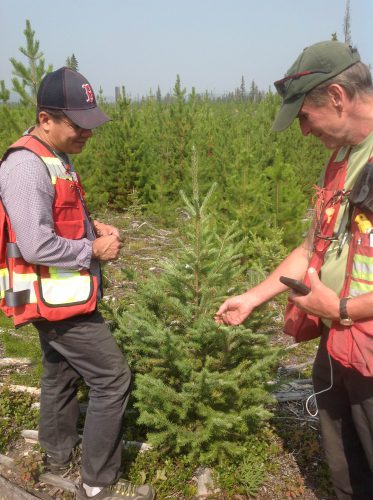 New guidelines for forest management in the dry Interior Douglas Fir ecosystem This Special Investigation Report from 2020 looked at how well the reforestation of harvested sites in the dry interior Douglas fir (IDF) ecosystem was meeting government objectives. The Board recommended that the Ministry of Forests re-assess the long-term reforestation objectives for the dry IDF, and update the objectives and standards to account for the likely consequences of climate change. Earlier this year, a new guidebook was released, Best Management Practices for Managing Dry Sites within the Thompson Okanagan Region. The Board is pleased to see this new guidance provided to forest professionals. (LINK TO REPORT)
New guidelines for forest management in the dry Interior Douglas Fir ecosystem This Special Investigation Report from 2020 looked at how well the reforestation of harvested sites in the dry interior Douglas fir (IDF) ecosystem was meeting government objectives. The Board recommended that the Ministry of Forests re-assess the long-term reforestation objectives for the dry IDF, and update the objectives and standards to account for the likely consequences of climate change. Earlier this year, a new guidebook was released, Best Management Practices for Managing Dry Sites within the Thompson Okanagan Region. The Board is pleased to see this new guidance provided to forest professionals. (LINK TO REPORT)
Canfor takes significant steps to protect habitat for the endangered fisher This 2021 complaint examined the impacts of timber harvesting on fisher habitat near Bobtail Mountain in the Prince George Forest District. The Board recommended that government clarify its expectations to licensees for application of best practices for fisher and that Canfor incorporate government’s expectations into its forest stewardship plan. Government has since told the Board it will not be clarifying non-legal expectations, but will instead develop legal provisions for the management and protection of fisher habitat. While it waits for government to clarify the requirements for fisher, Canfor is taking significant steps to improve its fisher habitat management planning and practices including the identification of high-quality habitat during cutblock design, improved in-block retention for denning sites and connectivity, and training for staff and contractors. Canfor staff are using the fisher habitat tool and are working closely with the provincial Fisher Conservation Team. (LINK TO REPORT)
In case you missed any of these recent news stories covering the Board’s work:
 Francis Njenga The Board is pleased to welcome Francis Njenga to staff as our Director of Audits. Francis is a professional agrologist with a background in range management. Francis began his career at the University of Nairobi, before moving to British Columbia. He joined the BC Government as a District Range Agrologist in 2000 and has since worked in the ministries of Forests and Agriculture. Francis has extensive background and experience in range and resource management.
Francis Njenga The Board is pleased to welcome Francis Njenga to staff as our Director of Audits. Francis is a professional agrologist with a background in range management. Francis began his career at the University of Nairobi, before moving to British Columbia. He joined the BC Government as a District Range Agrologist in 2000 and has since worked in the ministries of Forests and Agriculture. Francis has extensive background and experience in range and resource management.
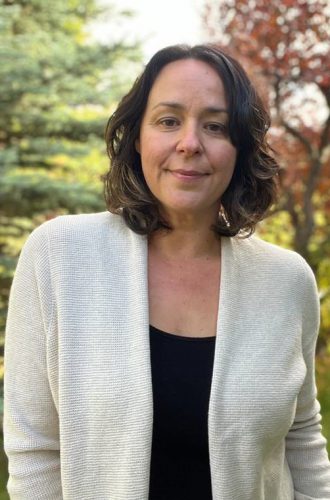 Marie Lou LeFrancois The Board is pleased to welcome Marie Lou LeFrancois as Manager, Audits and Investigations in the audit program. Marie-Lou has worked in forest research, planning, operations and policy for over 16 years. As a consultant, she worked on growth and yield, climate change, policy and statistics projects. She worked for the Ministry of Forests in authorizations, as a forest carbon advisor, and for BC Timber Sales as a planning forester in the district and as a wildlife resource specialist and a stewardship policy forester at headquarters, where she worked on various partial harvesting initiatives across the province. She brings a wide range of operational experience to the Board.
Marie Lou LeFrancois The Board is pleased to welcome Marie Lou LeFrancois as Manager, Audits and Investigations in the audit program. Marie-Lou has worked in forest research, planning, operations and policy for over 16 years. As a consultant, she worked on growth and yield, climate change, policy and statistics projects. She worked for the Ministry of Forests in authorizations, as a forest carbon advisor, and for BC Timber Sales as a planning forester in the district and as a wildlife resource specialist and a stewardship policy forester at headquarters, where she worked on various partial harvesting initiatives across the province. She brings a wide range of operational experience to the Board.
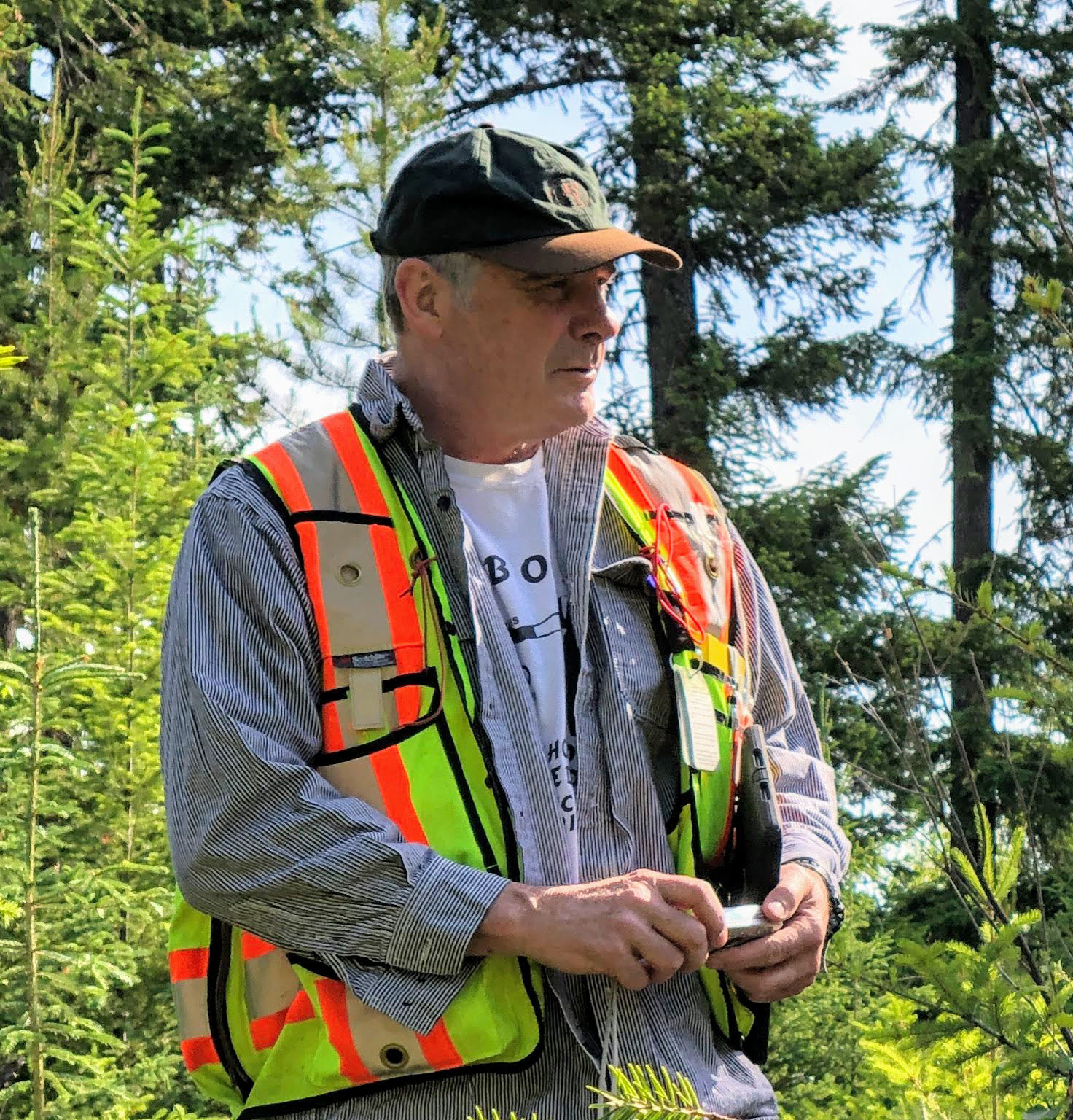 Happy Retirement Cam!Cam Leitch retired from the Board on March 31, 2022, after 14 years as Manager of Audits and Investigations. During his time with the Board, Cam led many audits, complaint investigations, and special investigations. Notable projects include the reports on Measuring Wood Waste, Harvesting of Young Stands, and Vancouver Island Landslides. Cam always brought a practical no-nonsense approach to his work. His breadth of experience and his versatility will be missed in all of our program areas. We wish Cam the best in the next stage of life, camping, traveling and riding his motorcycle.
Happy Retirement Cam!Cam Leitch retired from the Board on March 31, 2022, after 14 years as Manager of Audits and Investigations. During his time with the Board, Cam led many audits, complaint investigations, and special investigations. Notable projects include the reports on Measuring Wood Waste, Harvesting of Young Stands, and Vancouver Island Landslides. Cam always brought a practical no-nonsense approach to his work. His breadth of experience and his versatility will be missed in all of our program areas. We wish Cam the best in the next stage of life, camping, traveling and riding his motorcycle.
